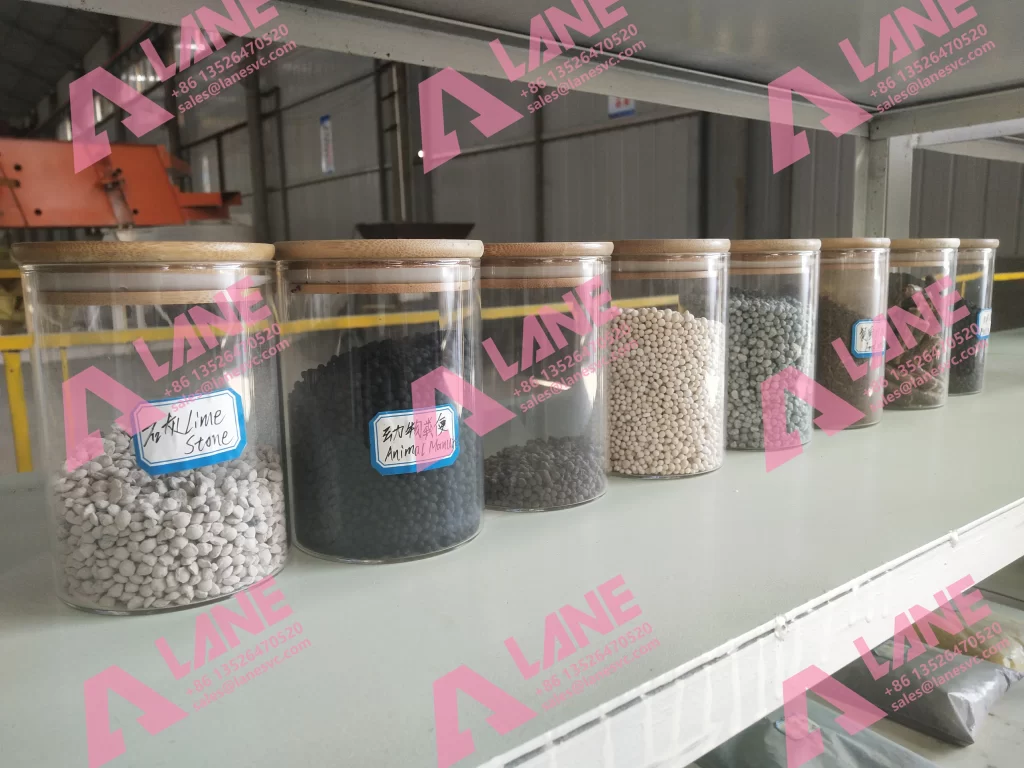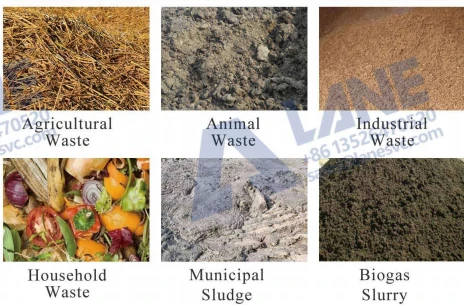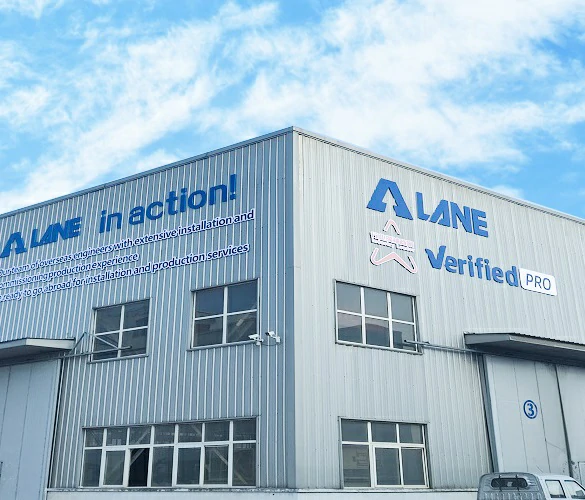Organic fertilizers have became a popular choice for farmers, gardeners, landscapers, and agricultural industries. It offers sustainable soil enrichment and eco-friendly nutrient to the plant. Globally people are now more aware about environmental safety and soil degradation. As long-term agricultural productivity continues to rise, organic fertilizers have became a viable alternative to synthetic chemical fertilizers.
However, even after all those benefits, organic fertilizers are not free from challenges. Their performance, availability, processing requirements, and nutrient delivery characteristics must be carefully evaluated to determine whether they are the right choice for specific crops and soil.
This article provides a detailed exploration of the advantages and disadvantages of organic fertilizer, the suitable raw materials, and how organic fertilizers contribute to sustainable farming systems. Also how with the help of LANE technology, such as aerobic fermentation units, granulation systems, and liquid organic fertilizer plants, how you can also get into the organic fertilizer business.
What is Organic Fertilizer?
Organic fertilizers is any nutrient material derived from natural biological sources, used to improved soil fertility and stimulate plant growth. Chemical fertilizer provide nutrient from synthetic or highly concentrated mineral. Organic fertilizers deliver nutrients naturally through the slow decomposition of organic matter. This helps keep the natural order balanced. It improves soil health, biological activity, and water retention capabilities.

Common type of organic fertilizers include: Compost and humus-based fertilizers, Animal manure fertilizers, Plant-based organic fertilizers, Seaweed and fish-based fertilizers, Bone meal and blood meal, Liquid bio-organic fertilizers.
Suitable Raw Materials for Organic Fertilizers
Organic fertilizers can be made from variety of raw materials. Those materials typically originate from agricultural, livestock, food-processing, or environmental waste streams. Below are the most commonly used raw material sources:
Livestock and poultry manure: This category includes raw materials that originate from livestock and poultry industry. Some of the examples are. chicken manure, cow dung, goat and sheep manure, horse manure.
This type of raw material are most common cheap and highly available. These materials contain high nitrogen content and are excellent for composting.
Agricultural residues: This type of raw materials are byproducts of agricultural industry. Those raw materials are crop straw, corn cob and husk, rice bran, coconut coir, palm kernel residues. These materials add carbon and help balance nitrogen-rich manure in composting.
Food and kitchen waste: This category involves raw materials that are wastes of resturunt industry. Those raw materials often includes vegetable scraps, fruit waste, coffee grounds, grain dust. Food waste is rich in nutrients and ideal for compost-based organic fertilizers.
Industrial organic waste: Those raw materials generates from industry wastes, Sugar industry wastes like molasses, bagasse. Paper industry sludge, brewery waste. fish processing waste.
These materials are excellent for liquid organic fertilizers..
Animal by-products: Those raw materials are left behind item of animals. Those raw materials are bone meal, blood meal, feather meal. These are rich in essential macronutrients, especially phosphorus and nitrogen.

Advantages of Organic Fertilizer
Organic fertilizers offers many agricultural, environmental, and long-term economic benefits. Their role is not limited to providing nutrient for crops. They improve soil health and restore natural ecological processes. They helps cleaning up the environment from methane gas. Some of their advantages are:
1.Enhances Soil Structure and Fertility
One of the biggest advantages of organic fertilizer is its ability to improve soil structure. Organic matters are easily dissolved and turned into reinforcement for the soil. It increases soil porosity, enhances aeration, and improves water-holding capacity.
Benefits:
Creates good soil structure for better root penetration
Prevents compaction and erosion
Promotes longtimefertility.
Enhances cation exchange capacity. It allows soil to retain nutrients efficiently
A healthy soil structure improves the chance of batter harvest and promotes plant health, resilience, and productivity
2.Boosts Soil Microbial Activity
Organic fertilizers also provide food to beneficial soil microorganisms. Good bacteria and earthworms feed on the nutrients and make soil more fertilize. These microbes play a crucial role in breaking down organic matter and releasing nutrients naturally.
Benefits:
Increases thenutrient cycling
Has Greater disease suppression.
Improved soil biodiversity
It Enhancesorganic matter decomposition
High microbial activity creates a self sustaining soil ecosystem that reduces long-term fertilizer dependency.
3.Slow-Release and Long-Lasting Nutrient Supply
Organic fertilizers releases nutrient slowly. Unlike chemical fertilizers which dissolve rapidly and may cause nutrient burn.
Advantages:
Reduces therisk of over fertilization
Can absorbnutrient over time
Improvesroot development
Less nutrient leaching into groundwater
The slow-release nature ensures that crops receive balanced nutrition through different growth stages.
4.Environmentally Friendly and Non-Toxic
Organic fertilizers are eco-friendly. They do not contain synthetic chemicals, salts or heavy metals.
Environmental benefits:
Don’t contaminategroundwater contamination
It has lower carbon footprint
It has no soil acidification
It is safe for beneficial insects, animals, and humans
Organic fertilizers are essential for environmentally responsible agriculture.
5.Improves Water Retention and Drought Resistance
Organic matter increases the soil’s ability to absorb and retain moisture. In dry regions or drought-prone areas this is essential. This improves the soil quality of those area.
Benefits:
It needs lessirrigation to work.
It creates better drought tolerance in plants
Because of the stracture of the fertilizer It minimized water runoff during heavy rain
It enhancessoil resilience
Water-efficient farming is becoming a global necessity, and organic fertilizers play a key role.
6.Supports Sustainable and Regenerative Agriculture
To fight the climates changes and other environmental threats the EU and other country of the world put some laws. Organic fertilizers align with those global agricultural value and provide sustainability, soil regeneration, and climate-smart farming.
Key contributions:
It converts waste materials into valuable agricultural inputs
it reducesthe dependency on chemical fertilizers
Organic fertilizer enhances carbon sequestration
Organic fertilizer strengthens natural ecosystems
Organic fertilizer production also creates economic opportunities in waste recycling, composting, and industrial sectors.
7.Safer for Crops, Farmers, and Consumers
Since organic fertilizers lack synthetic chemicals, they are safer for Hands and skin. And can be used by hand application.
Advantages:
Because of slow release there is no chemical burns
It has reduced respiratory risks
Creates more nutritious and healthier produce
Consumer preference for organically grown food continues to rise worldwide.
Disadvantages of Organic Fertilizer
While organic fertilizers offer many advantages, it also comes with limitations that need careful consideration before making a choice.
1.Lower Nutrient Concentration Compared to Synthetic Fertilizers
Organic fertilizers usually contain lower NPK values then chemical fertilizers. This makes them slower then chemical fertilizer.
Disadvantages:
Slower initial plant growth
Requirement of larger quantities
Difficulty in meeting high nutrient demands for commercial crops
Farmers growing crops that takes high nutrient must consider those before they can decide
2.Slow Nutrient Release
Slow release has its own advantages and disadvantages. In the situation when quick nutrient is required, slow release will be a wrong choice.
Disadvantages:
Delayed results during critical growth stages
Limited immediate correction of nutrient deficiencies
Poor performance in cold weather when microbial activity slows
This may affect crops during the early growth period or emergency nutrient needs.
3.Quality Variation
Different type of organic raw materials have different raw materials. Also raw material quality also different from batch to batch. This creates new issues for the farmers.
Disadvantages:
Inconsistent nutrient levels
Risk of pathogens if manure is not properly composted
Different moisture levels and textures
Non-uniform particle size
LANE heavy Industry provides high quality machinery and training to the operators and create advanced organic fertilizer production lines help reduce this variability, but home produced fertilizers may still fluctuate.
4.Risk of Pests, Weeds, and Diseases
If the raw materials are not processed correctly it might contain:
Weed seeds
Harmful bacteria
Insect larvae
Fungal spores
LANE heavy industry’s compost turners and fermentation system is designed to fight those possibility.
5.Takes Longer to Improve Soil Fertility
The effects of organic fertilizers are not immediate. They are excellent for long term soil building.
Drawbacks:
Slower improvement in severely degraded soils
Requires continuous application over seasons
Cannot replace instant nutrient demands for high-intensity farming
This can be a challenge for farmers expecting quick results.

Conclusion
By improving soil health organic fertilizer plays a soil role in cleaning the environment and providing the plants with nutrients. After reading the article advantages and disadvantages of organic fertilizer farmers can judge when to use organic fertilizers. This fertilizer is not meant to be used for instant result.
Their advantages such as enhanced soil structure, long-term fertility, microbial activity, and environmental safety makes them ideal for long term agricultural development.
However, their limitations like lower nutrient concentrations, bulkiness, slower nutrient release, and quality inconsistency should also be considered.
The best way to approach this is balanced strategy. Using both organic and inorganic fertilizers in the agricultural production bears optimal results.
Learn more on how LANE heavy industry can help you create a safe and advanced organic fertilizer production line. How you can create fertilizers with balanced NPK content.
For more details, please feel free to contact us.
Henan Lane Heavy Industry Machinery Technology Co., Ltd.
Email: sales@lanesvc.com
Contact number: +86 13526470520
Whatsapp: +86 13526470520